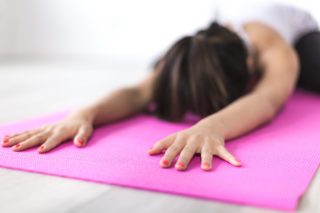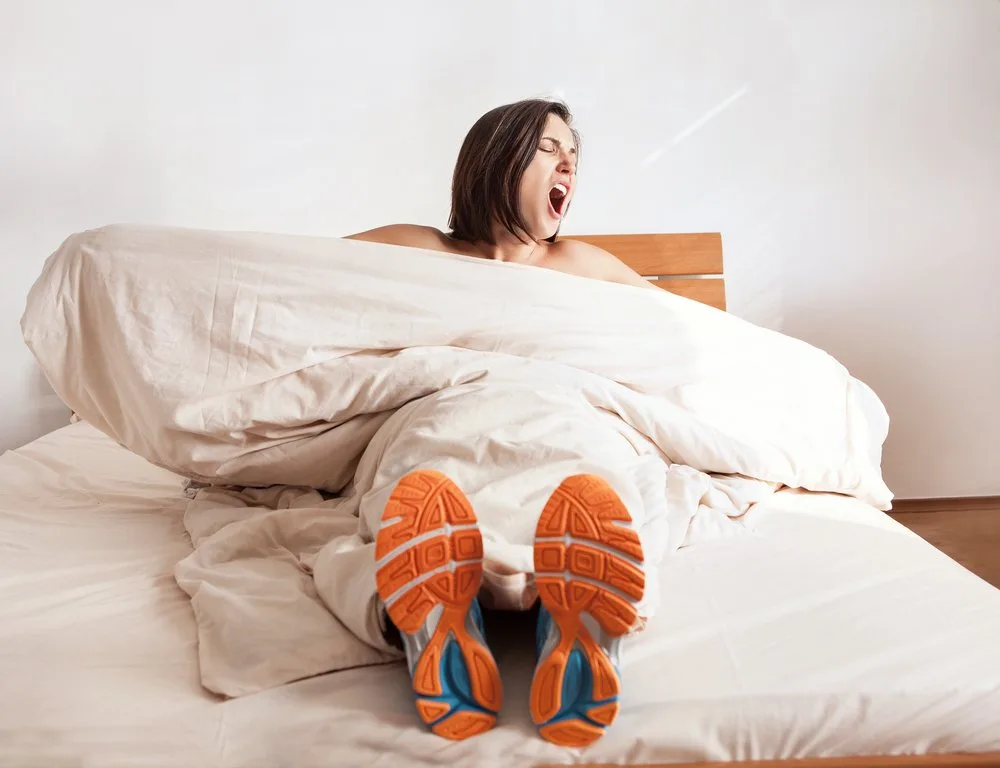Don’t get us wrong–toned arms and chiseled abs are an amazing benefit of working out regularly. But there are also plenty of reasons why getting physical doesn’t have to involve looking like a Marvel superhero. Chief among them: better mental health.
You probably already know that exercise can reduce symptoms of anxiety and depression, but did you also know that exercise can turn you into a decision-making ninja? Or that it can rev up your productivity and help you get more done?
As it turns out, your mental health has a lot to gain from regular physical exercise. Here are a few of the more surprising mental health benefits you can reap from your next sweat session:
7 physical benefits for mental health
1. Improves Decision-Making
Do you have a hard time making quick decisions? If so, here’s a life hack for you: Hit the treadmill or lift some weights before you need to make a big decision.
Just make sure you sneak in your daily exercise in the morning. According to a 2019 study published in the British Journal of Sports Medicine, an early bout of moderate-intensity exercise can improve decision-making skills across the day.
Not a morning gym-goer? Consider slowly moving up your bedtime and shifting your sleep schedule to make it work.
2. Reduces Stress (and Acne!)
You get acne because you’re stressed, but you’re stressed out because you have acne. It seems like a cruel paradox, doesn’t it?
When we become stressed, our body produces hormones that trigger inflammation and send our oil glands into overdrive. All those stress pimples can bring your confidence levels down and destroy your chances of achieving clear skin.
The good news is that exercise—and a regular skincare routine—can help you get back to a more confident, blemish-free state. Not only does exercise act as an incredible buffer against stress, but it also boosts blood flow to the skin to nourish skin cells to give you a healthy, post-workout glow.
 3. Promotes Better Sleep
3. Promotes Better Sleep
Anyone who has ever been sleep-deprived knows exactly how much sleep can impact our mood. You could hit zero traffic on the way to work, score a free coffee and get a raise—all in the same day—and still be a grump because you slept badly the night before.
Physical exercise can help your sleep-deprived moodiness on two different fronts. First, it can immediately improve your grumpy mood by giving you a blast of feel-good endorphins.
An active lifestyle can also help you fall and stay asleep. According to a 2011 study from Oregon State University, people sleep better when they get 150 minutes of exercise a week, which is the recommended amount of exercise per the national guidelines.
4. Motivates you
Feeling stuck in a fitness rut lately? Although the last thing you probably want to do is physical exercise, moderate-intensity can help you kick-start your fitness routine.
The key is to set small goals for yourself. A 2012 study published in the American Journal of Physiology found that men who exercised for 30 minutes lost more weight compared to men who did the same exercise for 60 minutes.
The reason? According to researchers, breaking down exercise into doable sessions may have encouraged participants to exercise for longer.
5. Improves Your Sex Life
You probably know that orgasms are good for mental health. If you want to have more of them, consider getting sweaty outside the bedroom.
Research has shown that physical exercise can improve orgasms for men and women in different ways. For men, regular exercise has been shown to improve erectile dysfunction.
For women, exercise itself can lead to orgasm itself. According to a 2012 study published in Sexual and Relationship Therapy, exercise-induced orgasm was most commonly reported during abdominal exercises, climbing, and weightlifting.
6. Boosts Creativity
Getting lost in a hobby is an effective form of self-care that can greatly benefit your mental health. Research shows that you don’t even need to be a natural at your creative hobby. The benefits of your mental well-being are the same.
That being said, you’re more likely to engage in a creative pursuit when you’re actually feeling creative. According to research published in the British Journal of Sports Medicine, exercise can lead to an increase in positive mood which can enhance creativity.
Physical exercise can also boost blood flow to the brain and improve your mental energy. So, if you find yourself in need of inspiration, just take the dog for a walk or do a yoga workout on YouTube.
7. Ramps Up Your Productivity
Do you ever have those bad days when nothing is getting done and you’re getting super frustrated because of it? That’s the worst.
The next time you have one of those days—and trust us, you will—take a quick break to sneak in a small workout. Research shows that it can do wonders for your productivity.
In a 2011 study published in the Journal of Occupational and Environmental Medicine, researchers asked dental workers to devote 2.5 hours each week to physical exercise. Their results showed that not only were workers more productive during the week, they were also less likely to get sick.
The Takeaway
Clearly, we’re hard-wired to move. Staying active makes our mind happy in a variety of ways. So, why not adopt a fitness routine and get moving? You’ll be happier and healthier for it.





![women [longevity live]](https://longevitylive.com/wp-content/uploads/2020/01/photo-of-women-walking-down-the-street-1116984-100x100.jpg)










